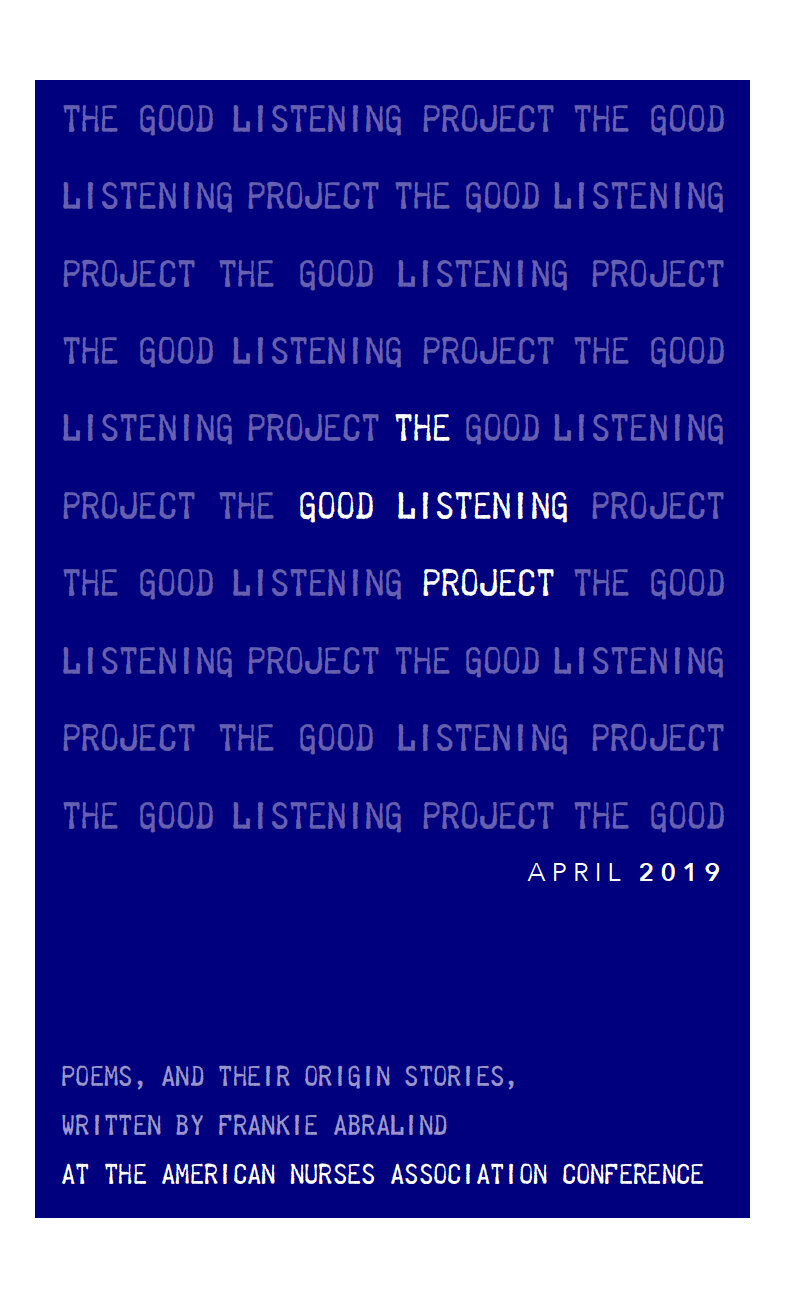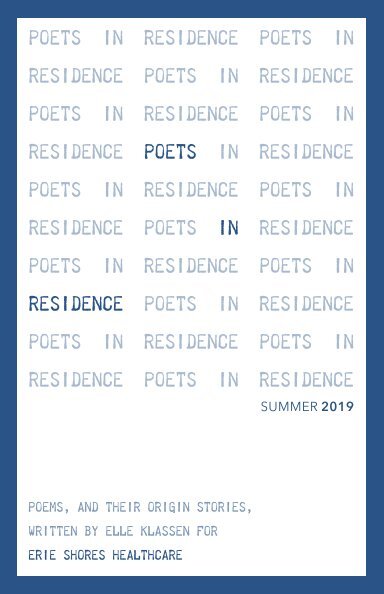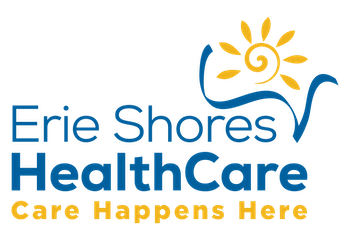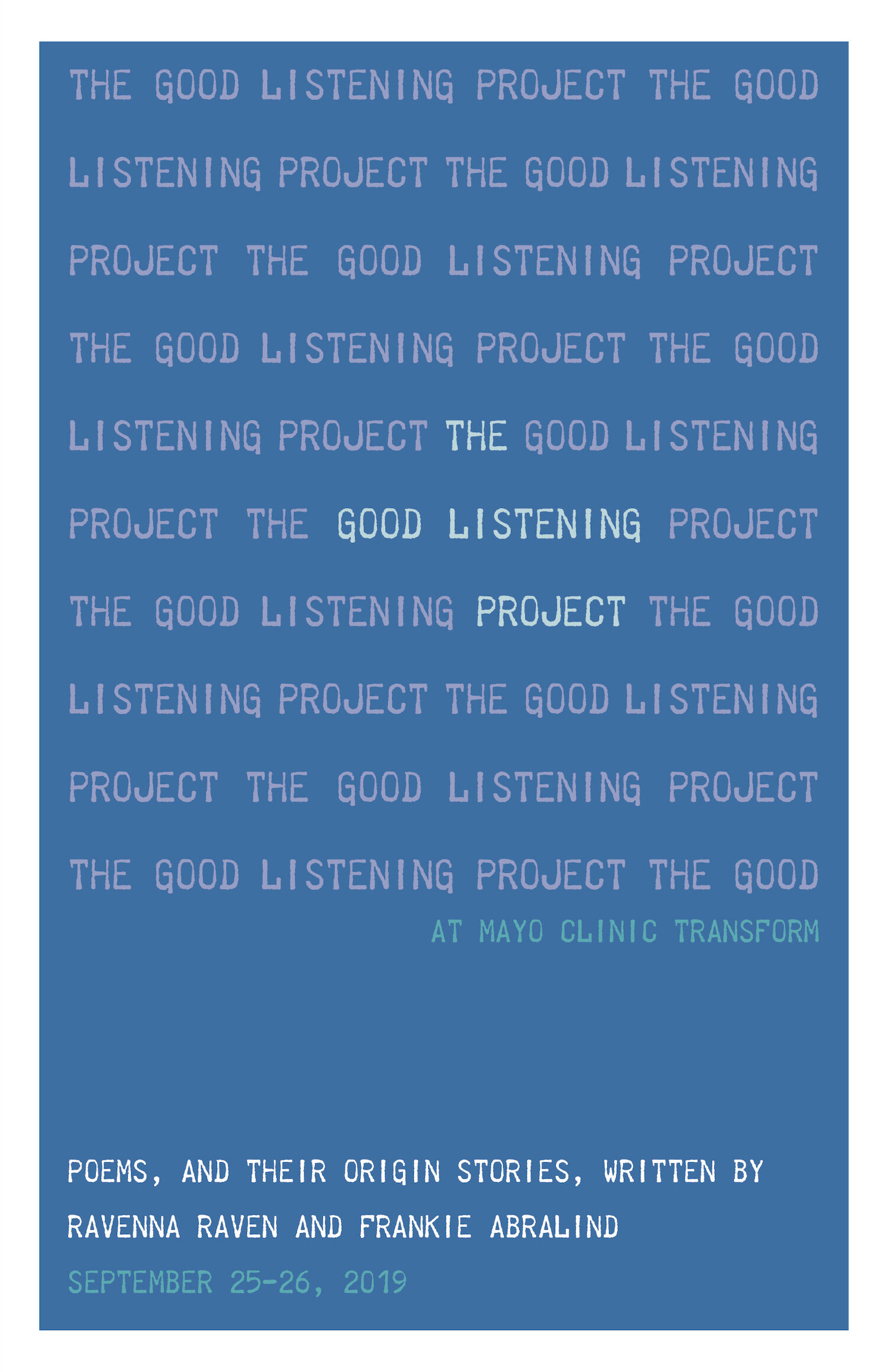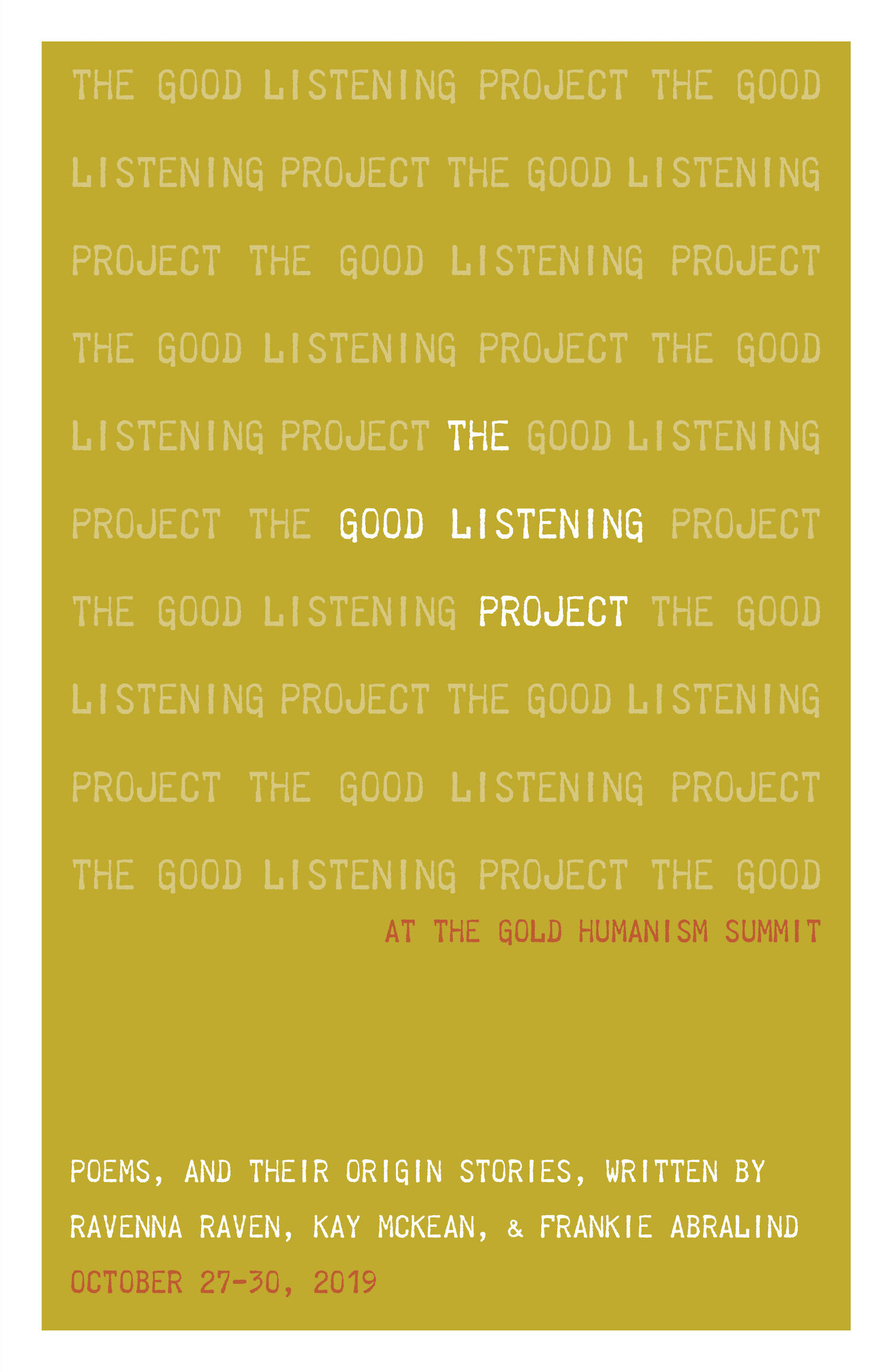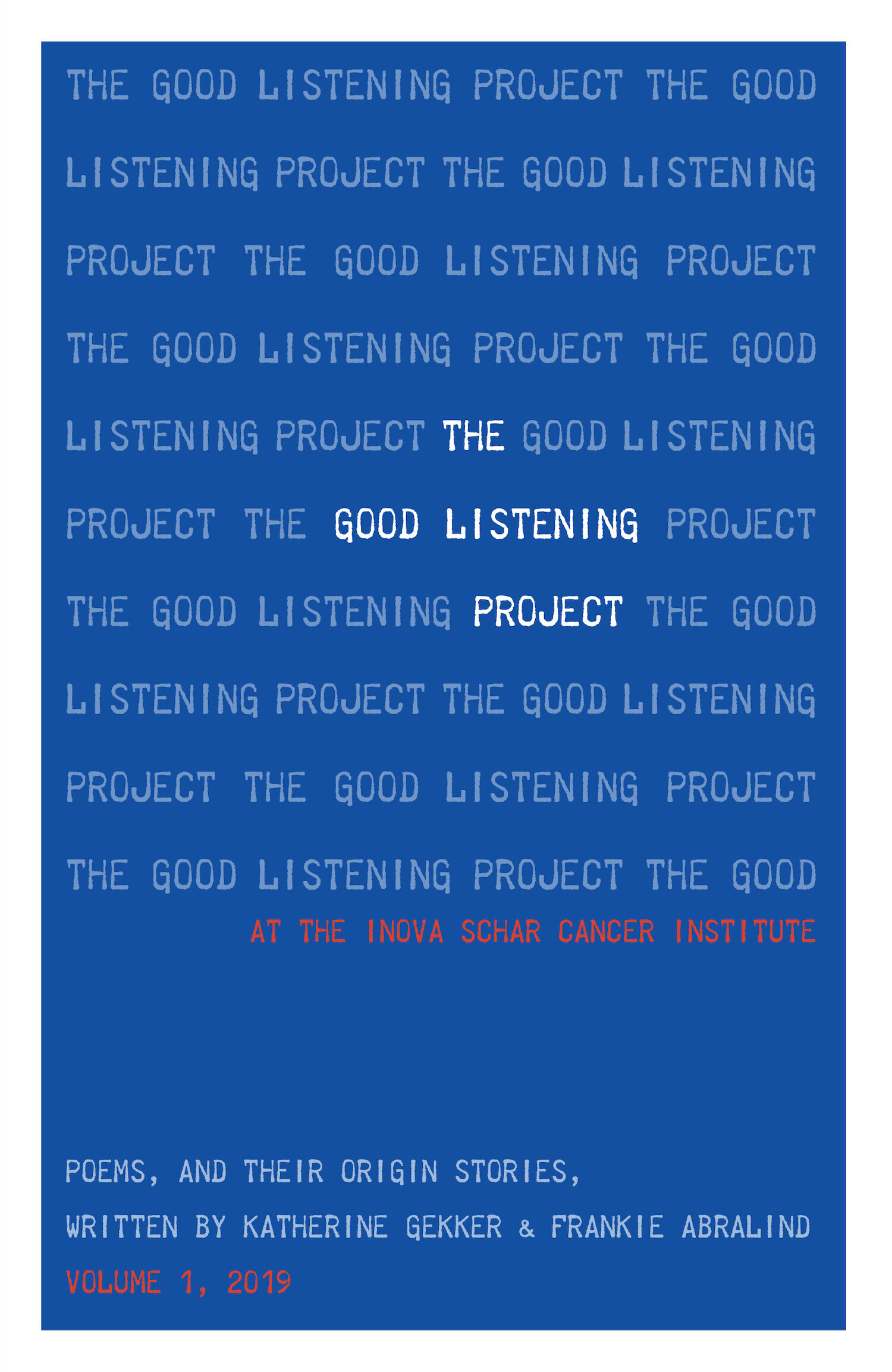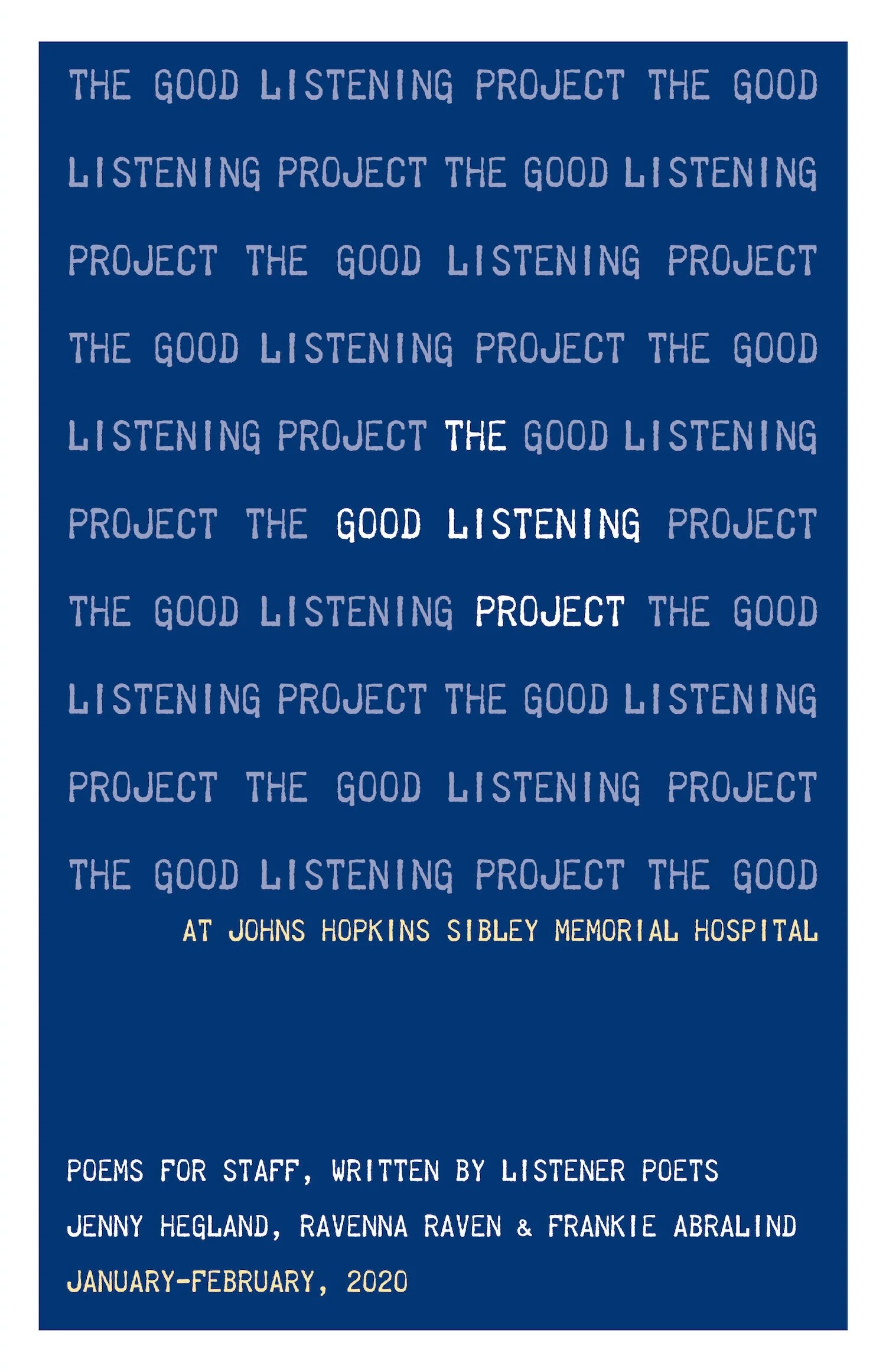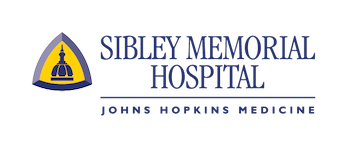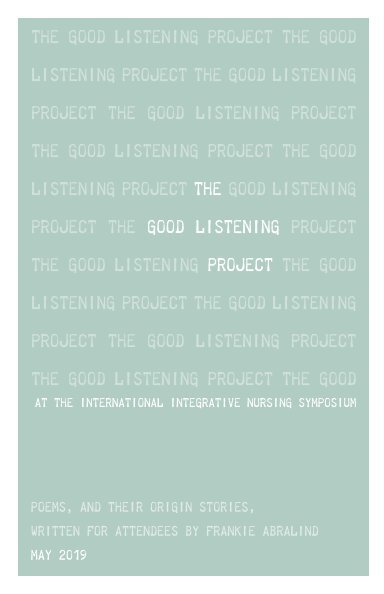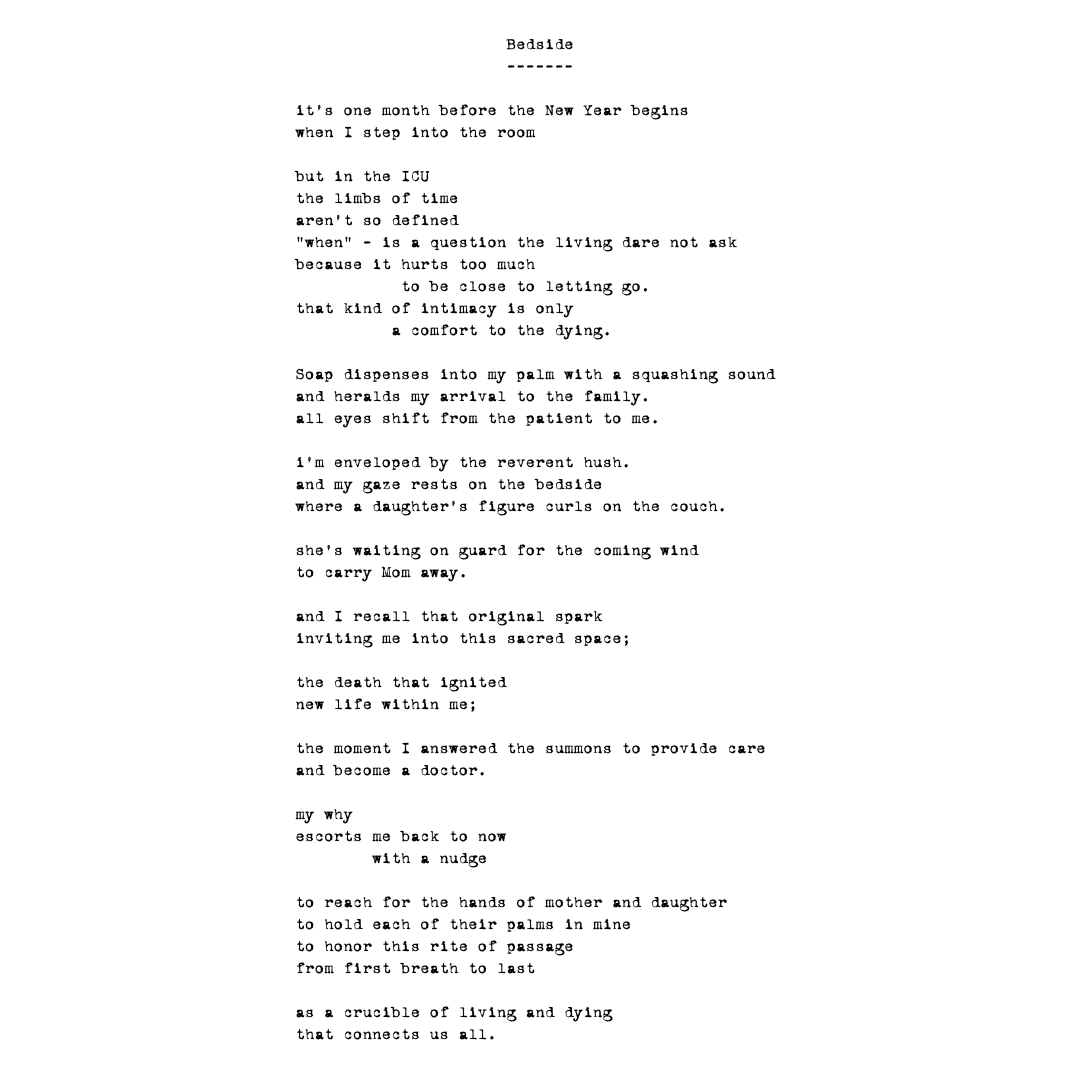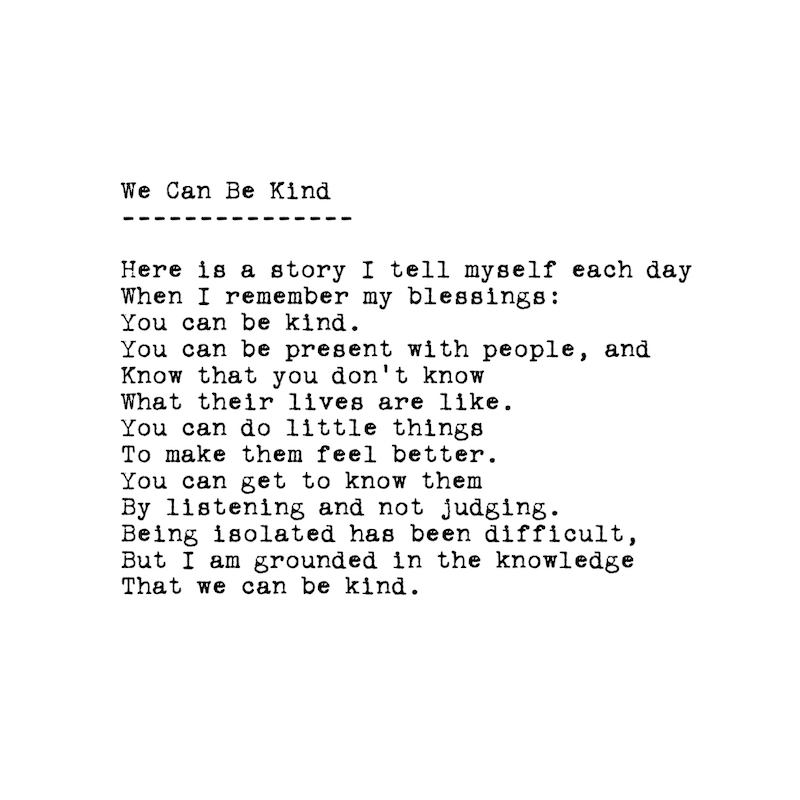Why We Listen

Our Mission
Humanizing healthcare through the healing power of poetry and compassionate presence.
Healing Through Listening and Poetry
The Good Listening Project (TGLP) is a 501(c)(3) nonprofit dedicated to humanizing healthcare through the healing power of poetry and compassionate presence. We create spaces for deep listening and poetic reflection that foster connection, reduce burnout, and promote wellbeing for healthcare professionals, patients, and their communities.
At the heart of our work are Listener Poets, who hold one-on-one listening sessions where individuals can share whatever is on their minds. Each conversation is transformed into a custom poem, a reflection of the person’s story, emotions, and experiences.
Why It Matters
“It was really much more impactful than I expected. I would never have believed it was possible if someone had told me that I’d feel better by doing this – but I do.
I feel heard and validated and that has already gone a long way for me letting go of some of the negative emotions I have been carrying.”
Where We Listen
The Good Listening Project has partnered with over 25 organizations – including premier institutions such as Johns Hopkins and the Mayo Clinic, as well as major academic medical centers, community hospitals, hospice programs, and long-term care facilities.
Who We Listen To
To date, we’ve listened to and written poems for over 3,000 individuals across the healthcare landscape – from nurses and doctors to chaplains, educators, and hospital leaders.
The Measurable Impact of Listening
The impact of our programs is both experiential and measurable, contributing to improved emotional health and workplace dynamics.
Listener Poet sessions and creative reflection initiatives have been shown to:
Support emotional regulation and thoughtful processing
Foster a sense of being seen, heard, and valued
Reduce isolation and stress in high-pressure environments
Strengthen workplace culture through empathy and shared humanity
Across hospitals, clinics, and community care spaces, our work integrates poetry and presence into the fabric of care. From curated poem collections and reflective story-listening workshops to immersive creative installations, each project demonstrates how listening becomes a powerful clinical and cultural intervention.
These real-world initiatives uplift marginalized voices, ease burnout, and cultivate environments where healing conversations can take root – helping caregivers reconnect with purpose, each other, and themselves.
Explore the Portfolio of Impact to see listening in action.
Explore Our Work
Each poem honors the diverse experiences and emotions shared within the healthcare community.
Her childhood was infused with Hawaiian-Polynesian music and dance, taught to her father by his mother. Today, this poemee is the Director of the PhD program in Biomedical and Translational Sciences. She has used HeLa cells for decades. Her life’s work is to connect the unbelievable discoveries of molecularly focused pre-clinical research directly to the patient experience of treatment.
She is a single mother born to a single mother and had to grow up fast. She is juggling a sticky work situation, her own anxiety and depression, and being away from home and her kids.
Instead of the usual Listener Poet format – listening to one person’s story and responding with a framing narrative and custom poem – I was invited to create a group poem for forty participants at the Arts in Healing luncheon, hosted by the Inova Health Foundation in partnership with the board.
What does it mean for people living with Sickle Cell Disease to be seen, heard, and understood? For this person, it meant finding – and using – her voice to advocate for herself and for others.
“I’ve experienced a lot of big losses,” she said, referencing the passing of a grandfather and two uncles who did not survive their cancer diagnoses. “There were others too.”
Professionally, Lacks’ story represents for her the need to critically examine our research infrastructure generally. “We need to pay more attention to the sustainability of research,” she explained. “Private companies benefit from publicly-funded research without a requirement to give back to ensure the viability of future research.”
“The fact of my life is a miracle,” she told me. Living with multiple chronic illnesses, this patient spoke to me of her journey with alopecia. Of how, in witnessing her body transformed by the condition, she continues to move at once through grief and reclamation.
“I can’t see a future outside of our relationship,” she tells me, “but I also can’t see a future outside of residency.”
“I always believe, no matter what the doctor says, that I will be cured,” she says as her sister sits next to her.
“I wonder if these medical professionals, in caring for people who face such insurmountable odds, walk around all the time carrying this weight I’m hauling now.”
He had been trying to cope with the grief ever since and was on a quest for soul-searching and meaning-making.
She spoke about the ways this traumatic event shaped who she is today: a person with an “unshakeable peace” born of deep faith,
She wanted to help people feel comfortable and transform the shame around colon issues. "I want to talk about things that matter, the things people don't want to discuss.
When we met, she was coming off a stretch of nine 14-hour shifts. She was tired but in good spirits.
She reflected on how her resilience was born from moments of shared mirth amid life's trying chapters.
“Life is complex and dirty, but digging in is important to me,” she said. “Maybe if more of us understood history, we could understand each other better.”
We are expected to research, contribute to scholarship, earn grants – all on our own time.
We are expected to research, contribute to scholarship, earn grants – all on our own time.
Every day, I try to see through the patient lens, and I ask: what can we do to change this broken system?
This past year, he was a right defensive tackle on his school football team, but for the past two and a half years, he’d been caring for his dad, who had cancer.
She was very proud of her daughter and has hopes for “a bright future that’s as pain free as possible”
“I’m trying to focus on doing little things to make people feel better during everything that’s going on in the world,” she told me.
“It’s hard to see others struggle,” she said. “How can I help with their struggle without struggling myself?”
"I'd tell her it's OK to be loud...it's OK to challenge and to bring all of you into these spaces where no one looks like you..."
Learn More
If you’re a healthcare leader seeking innovative ways to support wellness in your organization, we’d be glad to connect.
Schedule a Conversation
Schedule a time to learn more about how listening and poetry can strengthen well-being across your community.
Support Good Listening
Want to bring good listening to your healthcare community? Connect with us – we’d love to hear from you.

